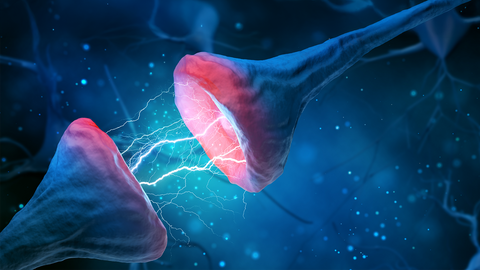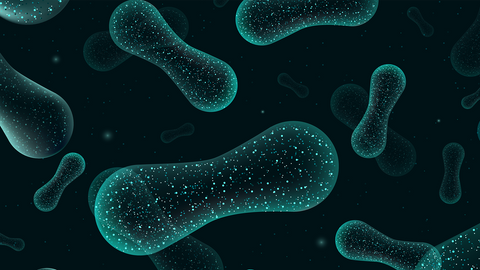Education

If you’ve ever fallen in love, you know full well how powerful its effects can be (for better or worse!) As it turns out, science has revealed that there’s a good reason why love is such a big deal. The effects it can have on us, especially our brains, are like no other. It creates not only euphoria, joy, and fulfillment, but it can also create chemical dependency in our minds. Some researchers even compare the effects of love to hard drugs in terms of its addictive quality.
If you’re still not convinced of the power of love, continue reading to learn about the surprising effects of love on the brain.

At some point, you've probably been asked this: "What would you eat if you could only have one thing on a desert island?" It's a silly game, but it poses an interesting question. Is there one food that's better than all the others? It's tough to say for sure, but we do know that eggs are one of the most complete foods on earth. Why are eggs good for you? Just one egg contains an enormous amount of vital nutrients and minerals that are key to your health. Not only that, eggs contain powerful fuel for your body and have a host of health benefits. Today we examine 6 reasons why eggs are the best. Scroll down to learn just some of the ways eggs can benefit you and your body.

You hear the word 'neurotransmitter' thrown around all the time in the health industry, but it's not always clear what they are or why they matter. Today we want to take a deeper look at how neurotransmitters function--what they do for you, and why you need them for your body to perform optimally. Scroll down to read more about neurotransmitters and how they could be affecting the way you think and feel.

If you’re like most Americans, you’ve got a lot going on. Statistics show that our schedules are fuller than ever and that we’re struggling to find balance with our time. According to ABC News, 20% of Americans work at least 49 hours a week. A little less than half of that work 59 or more.
Beyond work, US citizens also report high levels of stress with family life. A Gallup poll reveals that 55% of parents with young children feel there isn’t enough time in the day.

All of us who are older than say, 18, remember well what life was like before smartphones. We remember how quickly how they went from being a luxury to a necessity. Now, many of us couldn’t even do our jobs without them. Smartphones are so pervasive that physical therapists are now warning against a phenomenon called ‘text neck,’ which is a deformity in posture due to constantly looking down at a phone. But bad posture may not be the only side effect of phone addiction. Scientists are just now beginning to understand how smartphones may actually be changing our brains–and mostly for the worse. Today we look at some of the cognitive effects of smartphones; also, we will explore ways you can detach from your phone and enjoy life.

At some point you’ve likely heard the term ‘cognitive function,’ but you might have wondered, ‘what does it really mean?’ A good starting point is understanding the word cognition.
Cognition comes from the Latin word cognoscere, which means ‘to get to know.’ Cognition refers to your ability to perceive, react, make decisions, and respond appropriately. Key to your everyday function, cognition helps you distill information down to what is important and meaningful.

It’s easy to forget, but your eyes, like every other organ, need to be cared for and maintained as you get older. Eyesight is something most of us take for granted, but it’s estimated that up to half of adults develop some kind of cataracts by the time they are 75 years old. The good news is that there’s a lot you can do for your eyes, no matter what your age may be. Some of these things are lifestyle measures, and others have to do with nutrition and supplementation. To learn more about your eyes: how to care for them and what you can do to protect them, keep scrolling down.

Caffeine is for many people a constant morning companion, and a lot of us couldn’t imagine life without it. But is it healthy? Over the years, news reports seem to conflict on whether or not caffeine is a good or bad thing. To put the matter to rest, we rounded up the definitive scientific research on the matter. In this article, we review the benefits, potential negatives, and some of the most frequently asked questions about America’s favorite stimulant.

It seems these days that we see the word 'antioxidant' everywhere, especially when it comes to food advertising. More and more brands are labelling their products 'antioxidant-rich,' as though that were universally understood. The funny thing is that unless we have a background in medicine or nutrition, we may only vaguely understand that antioxidants are a good thing. So the question remains: what's behind the antioxidant hype? As it turns out, antioxidants really are a big deal, and having enough of them can be critical for our health. The reason for this is because antioxidants protect us from a chemical process that is at the root of many health issues. On the flip side, getting enough antioxidants can help us stay looking good and feeling good. Today we take a close look at antioxidants--what they are, why they matter, and some practical ways that you can get enough of them in your diet.

If you’re like most Americans, stress is something you manage on a regular basis. As a country we’re stressed out, and the increasing popularity of yoga and meditation reflect our need for rest and relaxation. Peace of mind isn’t always easy to come by, but rediscovering ancient remedies from natural ingredients may help. Let's look at a class of herbs called adaptogens, which are gaining widespread attention for their ability to fight stress. We will look at some of the most popular adaptogens and examine some of the science behind how they work.

When it comes to being mentally sharp, we all have good days and bad days. There are times when our minds seem to fire on all cylinders, but in other moments we may feel sluggish or forgetful. That’s a completely normal thing and just part of life. However, if our minds feel constantly unclear, tired, or slow, that could point to a different problem. Today we look at an issue called brain fog, a somewhat mysterious phenomenon that can cause our thinking to become cloudy. We will take a look at what scientists are saying about the cause of brain fog and some effective ways that you can help clear it up for good.

Does your head feel foggy? Do you wake up inexplicably tired? Do you struggle with mood imbalance for seemingly no real reason? The root cause may be in a place you'd never think to look: the gut. You might be thinking, "Isn't all of this a brain issue?" It certainly is, but scientists are becoming more and more convinced that there is an incredibly complex connection between your gut and your brain. In other words, if something is off with your gut health, it can actually affect how well your brain functions.




